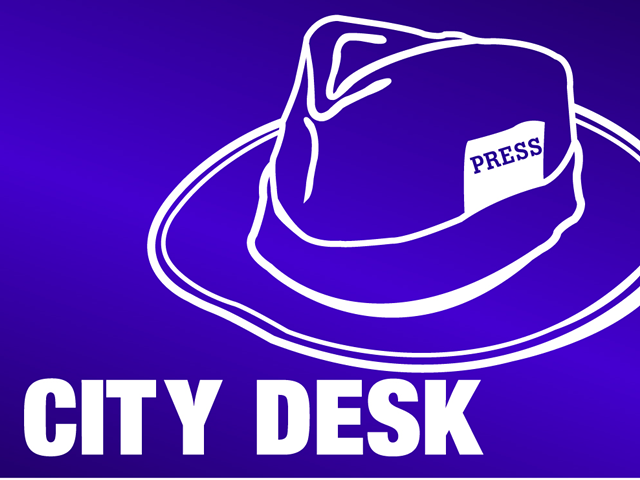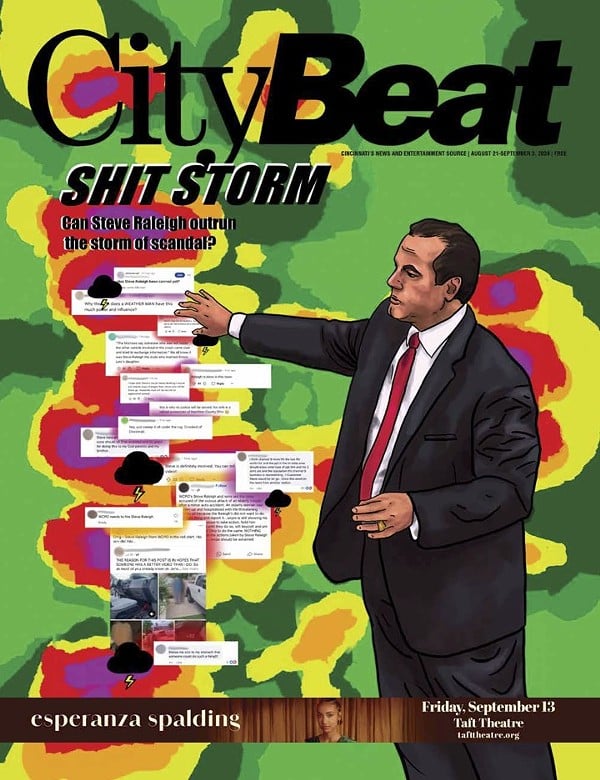Months of strife between the nonprofit tasked with programming and raising money for the renovation of the Emery Theatre and the organizations above it came to a head last week when the Requiem Project sued the University of Cincinnati, which owns the building, and two organizations that run it.
Meanwhile, UC and the chain of command between it and the Requiem are offering conflicting explanations about whose decision it really was to cut the Requiem out of the picture.
The Requiem Project, a nonprofit organization that formed in 2008 to oversee programming and raise money to renovate the century-old theater, filed a lawsuit Aug. 2 seeking a temporary restraining order that will keep the organization from being evicted from the building, and it asks a judge to force the Emery Center Corporation, which oversees the theater, to sign a long-term lease with Requiem as outlined in a 2010 contract. Requiem’s leaders say this document — called a letter of intent — is still binding even though they operated the venue under a series of temporary agreements until the current one expired this month.
The Requiem’s founders, Tina Manchise and Tara Gordon, say they don’t know what changed between 2008 when they came on board and this year when they lost control of the venue’s operation. Manchise and Gordon were notified in January that their management agreement ending in August was not going to be renewed. They continued trying to program events in the space during the spring, but to no avail.
“They’ve never said why and we’re really backed into a corner,” says Gordon, who moved to Cincinnati from Boston to start Requiem with Manchise, a Cincinnati native. “It was never our intention to go to court. We’re a nonprofit. We’re the only company really since the ’60s that has programmed the theater in the way that it has been programmed, and our intention is to fulfill Mary Emery’s mission, which is that this theater be used by the community. And we’re back and forth in a lease negotiation since 2010 and we’ve hit a wall.”
CityBeat has been contacting people close to the situation for weeks in response to rumors from people in the arts community that changes were imminent.
Kathy Schwab is the head of the Emery Center Apartments Limited Partnership (ECALP), a for-profit company that oversees the building’s apartments and subleases the theater to the Emery Center Corporation, of which she is also a board member. Schwab told CityBeat last week that all programming in the theater has to be approved by UC and that the university shut everything down this year because of liability concerns related to the theater’s dilapidated condition.
The university says it has nothing to do with the Requiem Project or Emery programming: UC spokesperson Greg Hand declined to comment when contacted last week by CityBeat about the lawsuit, only stating that UC doesn’t have a relationship with the Requiem Project because Requiem works directly with the ECC, which subleases from ECALP. Hand says UC’s only relationship is with ECALP.
But on June 12, it was ECALP’s lawyer who notified the Requiem Project that there wasn't enough time to get consent from ECC and UC to use the theater for this year’s MidPoint Music Festival, according to an email obtained by CityBeat.
In the email, ECALP’s lawyer, Andrew Shott, also said UC was not willing to extend Requiem’s management agreement.
Shott states in the email, “I am advised that the MidPoint Festival runs from September 27-29, well after the August 1 Management Agreement termination date. Neither ECC nor UC is willing to consent to or permit an extension of the existing Management Agreement.”
(Full disclosure: CityBeat owns and operates the MidPoint Music Festival.)
Shott also describes a scheduled exterior renovation during which a contractor needs to use the building’s carriageway, where MPMF last year placed portable toilets because the building currently doesn’t have plumbing.
“The accommodation of that festival at the Emery this year will not be possible,” Shott wrote. “Hopefully, the Emery could be available in future years to participate in this festival.”
Two days later, Schwab notified MidPoint organizers that the venue would not be available this year. She said she would work to overcome any barriers keeping the festival out of the Emery next year.
Schwab told CityBeat last week that MPMF wasn’t authorized because UC found out how much liability was involved with operating the theater under temporary occupancy permits, which are necessary because the theater needs significant renovations before it will qualify for a permanent certificate of occupancy.
“UC has made it very clear that they have to be in control of the application process, that the state will not give (a temporary occupancy permit) to a non-owner,” Schwab said. “That goes for the people that have the 80-year lease on the building, which is us. We got severely reprimanded for not going through them. We went around UC to get the temporary occupancy permit (last year), which wasn’t a good thing.”
Manchise and Gordon maintain in their lawsuit that the ECC and UC are purposely blocking the Requiem from moving forward with their original plan to incrementally update the 1,600-seat theater and allow programming to continue during the process.
After signing the letter of intent in 2010, the Requiem Project temporarily opened the Emery Theatre in 2011 to celebrate the 100-year anniversary of Mary Emery’s dedication of the theater and to reintroduce the public to the long-overlooked resource — the theater was modeled after Carnegie Hall in New York City and is considered “acoustically pure.” It was the home of the Cincinnati Symphony Orchestra from 1912-36 and has hosted the likes of Eleanor Roosevelt and Dr. Martin Luther King, Jr.
During recent years the Requiem has worked with local arts organizations such as Exhale Dance Company, Cincinnati Film Festival and various musical groups.
The theater, located in the building that houses Coffee Emporium at the corner of Walnut Street and Central Parkway, sat vacant from 1988 until 2008 even though a court ruling in 1999 that allowed UC to develop most of the building into apartments required all profits to go toward the renovation and programming of the theater. That plan has never come to fruition, as the building still has four mortgages on it, according to Schwab.
Manchise and Gordon say the Requiem needs a long-term lease in order to secure large-scale donations to be spent on the theater. Schwab says there hasn’t been enough money raised during the past two years to move the renovation forward. And since Manchise and Gordon say the money can’t be raised without the long-term lease, they’re asking the Court of Common Pleas to force ECC to sign it.
“We believe that we’re right for the project as demonstrated by our history — our five-year investment, our monetary investment and the thousands of people who have contributed to the effort,” Manchise says. “First and foremost, we believe in the Emery and we’re bringing this forward because we believe we’re ready to get to a place where we can infuse capital.”
Schwab says the intent of ECC and UC has always been to renovate the Emery Theatre and that there could be new financing options to facilitate the entire renovation once mortgages taken out to renovate the apartments are paid off. She says everyone needs to “come to the table” to figure out a solution. And although Schwab won’t say why there needs to be a table in the first place, she maintains that there’s room for the Requiem to be part of a new plan going forward.
For Dan McCabe, the MidPoint Music Festival’s artistic director and a part-owner of Over-the-Rhine venues MOTR Pub and the soon-to-be-opened Woodward Theater, shutting the Emery’s doors indefinitely is a step in the wrong direction for the neighborhood.
“It was surprising to find out that that room was not going to be available to MidPoint,” McCabe says. “And while that’s disappointing for what we would like to deploy and do during the MidPoint Music Festival, it’s disappointing for Over-the-Rhine. It’s a gem — a very, very unique room and would have a huge impact on this neighborhood, if operating. With my perspective, going back to 2008 and trying to bring attention to it at the (Cincinnati Entertainment Awards) to now, it’s very frustrating that it sits there still unused.”
Mark Painter, one of the attorneys representing the Requiem Project, expects the defendants — ECC, ECALP and UC — to argue that a clause in the temporary management agreements the Requiem operated under after signing the letter of intent negates any earlier contracts. He says the ECC is refusing to deal in good faith.
“They’re trying to find a loophole and nobody knows why,” Painter says. “They won’t tell Requiem why all this came about.”
CONTACT DANNY CROSS: [email protected]






